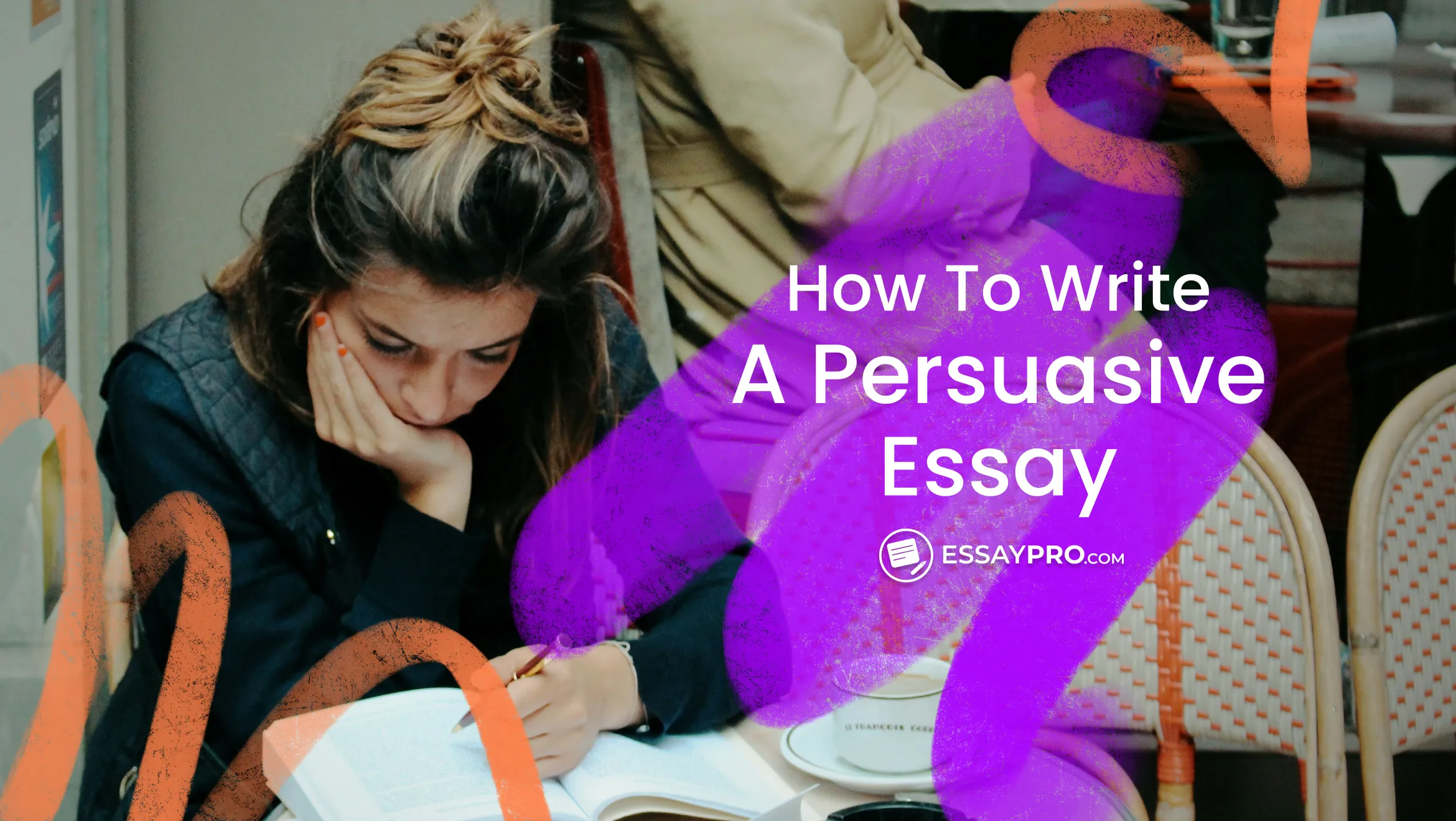Did you know that the first scientific abstracts can be traced back to the 17th century when scholars like Sir Francis Bacon began to condense their research findings into concise summaries? Abstracts have come a long way since then, becoming an essential component of scholarly articles, research papers, and conference presentations. Learning how to write an abstract for a dissertation is a skill that can greatly enhance the visibility and impact of your work.
Short Description
In this informative article, our dissertation writer will delve into the world of abstracts and uncover their significance in the realm of academic and scientific writing. Discover what an abstract is, why it's essential, and how to craft one effectively. We'll provide you with practical tips and expert guidance to ensure your abstracts not only meet the mark but also captivate your audience. Whether you're a seasoned researcher or just starting out, this article has something valuable to offer.


Understanding What is a Dissertation Abstract
At its core, a dissertation abstract is a brief but comprehensive overview of the main points, findings, and contributions of a larger piece of work. Its primary goal is to convey the essence of the research in a condensed form.
It typically covers key aspects of the research, such as the problem or question being addressed, the methodology used, the main results or findings, and the broader implications of the work. It's the appetizer before the main course, the map before the journey, and it plays an integral role in helping others decide if your research is worth their time and attention. Let's explore this in more detail:
%20(2).webp)
- Conciseness: A brief summary, typically 150 to 250 words, must adhere to precise and economical writing, where each word carries weight. Authors must distill the core of their research into this restricted word count, making each sentence a vital element.
- Self-Sufficient Synopsis: This self-contained summary offers a comprehensive understanding of the research, even when read independently from the main document. It should encompass key elements such as the research query, methodology, primary findings, and broader implications.
- Impersonality: Abstracts are generally composed in the third person, avoiding personal pronouns. The focus is on the research itself, maintaining objectivity to help readers evaluate the work without authorial bias.
- Transparency and Accessibility: A well-crafted summary should be lucid and approachable to a wide audience. While it may include technical jargon, it should strive for comprehensibility by both experts and non-specialists.
- Precision: Accuracy is paramount in a summary. It's crucial to faithfully represent the research without exaggeration or unsupported claims.
- Framework: Summaries often adhere to a structured format, encompassing sections like an introduction (introducing the research problem), methodology (detailing the research approach), results (highlighting main findings), and conclusion (addressing research implications). The specific format may vary according to publication or conference guidelines.
- Key Terms: Summaries frequently incorporate a list of relevant keywords or phrases. These aid readers and search engines in locating the work efficiently. Selecting appropriate keywords is pivotal for effective indexing and discoverability.
Exploring What's the Purpose of the Dissertation Abstract
Understanding the purpose of an abstract of dissertation is essential for any academic or scientific writer. It serves as the compass that guides the composition of this concise summary. Let's delve into the specific reasons behind the creation of this piece:
- Information Filtering: In today's information-rich age, researchers, students, and professionals often face a deluge of academic papers and articles. Abstracts play a pivotal role in helping individuals sift through this sea of information. They serve as a swift evaluation mechanism, allowing individuals to discern whether a specific research paper focuses on subjects that align with their interests and requirements.
- Decision-Making Tool: These summaries aid decision-making at various stages, helping readers decide whether to invest time in reading the full document. Journal editors and conference organizers use descriptive and informative abstracts to select an entire paper for publication or presentation. Thus, the quality and appeal of an abstract can significantly impact the visibility and recognition of a research contribution.
- Search and Retrieval: Abstracts facilitate the organization, cataloging, and retrieval of academic works in databases and libraries. They are key elements for search engines, enabling precise indexing, categorization, and accessibility. When you search for scholarly articles on a specific topic, the presence of keywords in abstracts greatly influences the results you receive.
- Quick Reference: A descriptive abstract offers a swift reference point for scholars who want to recall the core findings and insights of a particular study. Researchers and students often use abstracts to determine whether a work is worth exploring in-depth for their own research.
- Global Accessibility: In an increasingly globalized academic community, English has become the lingua franca for scholarly communication. Descriptive abstracts provide a bridge for non-English speakers to access research findings, enabling a wider dissemination of knowledge.
Dissertation Abstract Example
In our exploration of dissertation abstract examples, we've crafted a practical sample, which, in this case, would span approximately 100 pages. This abstract of dissertation example showcases the key components of a comprehensive research summary and demonstrates how to effectively condense extensive research into a concise yet informative format.
In our exploration of dissertation abstract examples, we've crafted a practical sample, which, in this case, would span approximately 100 pages. This abstract of dissertation example showcases the key components of a comprehensive research summary and demonstrates how to effectively condense extensive research into a concise yet informative format.
How to Write a Dissertation Abstract with 4 Key Steps
In the world of academia and research, your dissertation abstract is your first impression, your elevator pitch, and your ticket to engaging your audience. But crafting the one that truly captivates can be an art form in itself. In this guide, we'll unveil the key steps to help you master this art, from deciphering the essential components to weaving a compelling narrative that leaves a lasting impact.
%20(1).webp)
Step 1: Introduction
The introduction in your dissertation abstract is the gateway, the moment you capture your audience's attention and set the tone for what follows. It's where you frame the research question, highlight its relevance, and give your readers a compelling reason to delve further into your work.
Imagine your research paper is about a groundbreaking energy-efficient building material. Instead of a mundane start, consider opening with a captivating question: 'What if we told you that buildings of the future could be constructed with a material that not only slashes energy costs but also helps combat climate change?'
The introduction is your chance to engage, inspire, and intrigue your audience while writing an abstract, prompting them to explore the innovative and significant research that lies ahead.
Step 2: Methods
If you are wondering how to write an abstract for a dissertation, remember to provide a concise but informative glimpse into how you conducted your research in the methods section. This is where you let your readers know the tools and techniques you employed to gather your data or evidence.
For instance, if your research involves using advanced machine learning algorithms to predict financial market trends, you would describe your methods as 'We harnessed cutting-edge machine learning algorithms to analyze market data from the past decade.'
In a scientific paper on the impact of a new teaching approach on student learning, your informative abstract could state, 'Our research involved implementing a novel blended learning model, combining in-person instruction with interactive online modules.'
By offering a brief but explicit insight into your research methods, you allow your audience to grasp the rigor and innovation behind your work, setting the stage for forthcoming results and discussions.
Step 3: Results
In the results section of your dissertation abstract, you showcase the heart of your research – the findings and outcomes. This is where you provide a glimpse of the impact of your work.
Instead of vague terms like 'significant' or 'notable,' be precise and quantitative. For example, if your research has identified a reduction in energy consumption due to a new lighting technology, you might say, 'Our study revealed a remarkable 40% reduction in energy consumption when implementing the innovative LED lighting system.'
Or, for a dissertation topic on the effects of a vaccination program, you could state, 'The vaccination initiative led to a substantial 65% decrease in the incidence of the target disease within the studied population.'
By quantifying your findings and presenting specific measurements or statistics, you make your results more tangible and impactful, allowing your audience to grasp the significance of your research at a glance.
Step 4: Discussion
The discussion section of your dissertation abstract is where you connect the dots, providing insights into the broader implications of your research. It's your opportunity to convey the 'So what?' of your findings.
For example, in a study exploring the environmental impact of urban transportation changes, your abstract could conclude, 'These findings highlight the potential for sustainable urban planning to significantly reduce carbon emissions, offering a blueprint for cities to combat climate change.'
Or, in a study on the psychological effects of art therapy in elderly populations, your discussion might emphasize, 'Our research underscores the value of art therapy as an innovative approach to enhancing the mental well-being of the aging population, with implications for a more holistic and effective approach to senior care.'
In the discussion section, you should address the long-term consequences and the significance of your research, whether it's in terms of policy changes, practical applications, or fundamental shifts in the field. It's where you convey the transformative power of your work and inspire your audience to recognize its value.
3 Useful Strategies for Writing a Dissertation Abstract
In the vast landscape of academic and research publications, a dissertation abstract is often your first and, sometimes, only chance to make an impact. It's the trailer that either entices the audience to watch the full movie or lets them move on. But writing dissertation abstract is not just about summarizing your work; it's about engaging your readers, leaving them curious and eager to explore further.
To help you navigate this intricate process, we gathered three indispensable strategies. These practical approaches are designed to not only make your abstract informative but also to give it a unique edge that will linger in the minds of your audience.
Recall the WWHS Principle
Crafting an effective abstract requires you to recall the WWHS principle: 'What, Why, How, and So What.' These four pillars from are the foundation of an abstract that informs, engages, and leaves a lasting impression on your readers.
Articulating the 'What' with Context
- In the 'What' segment, provide a succinct yet comprehensive overview of your research. This is where you outline the central focus of your study, encompassing not only the 'what' but also the 'who' and 'where.' Clarify the subject matter of your research and introduce the key participants or elements involved. Additionally, establish the geographical context by specifying where your research took place. By presenting this contextual information, you paint a vivid picture of the setting and the essential actors within your study.
Significance Unveiled: The 'Why' in Your Research
- Within the 'Why' section, dive into the importance of your research. Explore the motivations that fueled your research journey. What critical questions or knowledge gaps ignited your curiosity and propelled your investigation? Reveal the rationale behind your study, emphasizing its relevance to your field, practical applications, or its role in addressing pressing issues. This portion acts as the driving force behind your research, bridging the objectives of your study with the larger academic or practical context.
Mastering Research Methodology: The 'How' of Your Study
- The 'How' component delves into the mechanics of your research methodology. Succinctly describe the methods you employed, whether it involved a qualitative case study, a quantitative survey, or an experimental design. Offer sufficient detail to grant readers a glimpse into your methodological approach without overwhelming them. This is where you underscore the rigor of your methodology, assuring your audience of the sound foundation of your research.
Discovering Meaning: The 'So What' in Your Findings
- Finally, the 'So What' segment encapsulates the pivotal findings and the broader implications of your research. Even if you prefer the option to buy dissertations, you should remember to highlight the significant discoveries, results, or insights uncovered in your study. Explain the broader implications of these findings and their potential influence in the larger context. How might your research shape future inquiries, contribute to practical applications, or expand the existing knowledge in your field? The 'So What' segment elevates your abstract beyond mere information, transforming it into a source of invaluable knowledge.
Embrace Simplicity
Simplicity enhances clarity. It ensures that your abstract can be understood by experts and non-experts alike. Complex language or convoluted sentences can obscure your core message, so using clear and simple language is essential. Furthermore, when you're working with a limited word count, simplicity is your ally. It allows you to convey your message efficiently, ensuring that every word serves a purpose. In contrast, using complex language can quickly eat up your word limit.
An abstract isn't just for the academic community. Policymakers, journalists, and individuals from diverse backgrounds may take an interest in your work. So, simple dissertation abstracts broaden the audience, making the research relevant beyond academia.
Lastly, simplicity helps you distill the essence of scientific journals. It forces you to identify the key findings, implications, and fundamental message. In a world flooded with information, simplicity ensures that your research stands out and effectively informs, engages, and inspires.
Precision is Key
Precision plays a pivotal role in ensuring that your message is not just heard but understood with utmost clarity. It's not about verbosity or complexity; rather, it's the art of choosing the right words and framing your ideas with meticulous accuracy. Precision eliminates ambiguity, allowing your readers to grasp your message precisely as intended. Whether in a dissertation abstract, academic paper, or any form of communication, it is the beacon that guides your audience through the intricate maze of ideas, ensuring that your message lands with the impact it deserves.
Ready to Enchant Your Readers from the First Glance?
Our expert writers are here to distill your thesis into a concise and engaging summary that will leave your readers intrigued and eager to delve deeper!

Daniel Parker
is a seasoned educational writer focusing on scholarship guidance, research papers, and various forms of academic essays including reflective and narrative essays. His expertise also extends to detailed case studies. A scholar with a background in English Literature and Education, Daniel’s work on EssayPro blog aims to support students in achieving academic excellence and securing scholarships. His hobbies include reading classic literature and participating in academic forums.

%20(1).webp)




